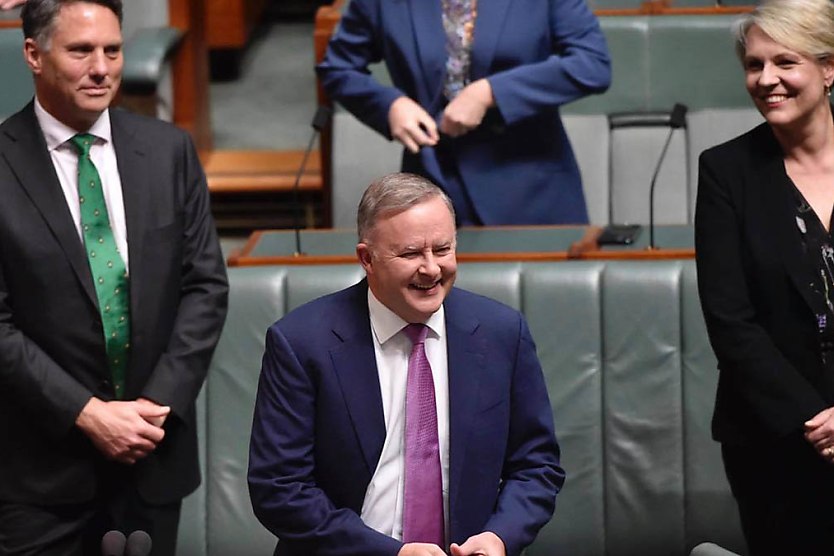
Anthony Albanese’s Easter long-weekend election promise has received both praise and criticism, with the staunchest oppositions claiming the penalty rates plan will “signal the death knell for many”.
As announced by Minister for Employment and Workplace Relations Murray Watt, the Albanese government will move to legislate penalty rates in award upon re-election.
“Penalty rates are an essential feature of minimum terms and conditions in modern awards and should not be reduced,” said Minister Watt.
“In recent months, big business lobby groups in the retail, clerical and banking sectors have made applications to the Fair Work Commission to cut penalty rates of lower-paid workers from awards. If successful, these applications by employer groups would reduce the overall income of workers by thousands of dollars each year.”
As previously reported by HR Leader, backed by an alliance of major retailers – including Woolworths, Coles, Kmart, and Costco – the Australian Retailers Association filed an application to the Fair Work Commission (FWC), which included a total of 17 proposed amendments to the General Retail Industry Award 2020 (GRIA).
This included a proposal to remove any worker earning $53,670 and above on the retail award of their penalty rates.
“In the retail case, the Albanese government has intervened to argue as a matter of principle the wages of low-paid workers should not go backwards,” Minister Watt said.
“In contrast, Peter Dutton has said he will not stand up to the big retailers, as they attempt to cut their workers’ pay.”
Australian Council of Trade Unions (ACTU) president Michele O’Neil applauded the move by the Albanese government while taking aim at Peter Dutton.
“Everyone working over this Easter break deserves their penalty rates. Give them your thanks because big employers, Peter Dutton and the Coalition won’t. No one, apart from perhaps Peter Dutton, could reasonably be surprised by a poll telling them that Australians think penalty rates are important in being able to earn enough income to get by,” O’Neil said.
“Penalty rates are already at risk because Peter Dutton has not intervened in the retail case to preserve retail workers’ penalty rates, despite the Albanese government doing so.”
‘Blatant hypocrisy’
On the other side of the workplace relations aisle, Innes Willox, chief executive of the Australian Industry Group, strongly criticised the move of the Albanese government while simultaneously raising alarm bells about the “trust” that the Labor government has in the Fair Work Commission.
“The new proposals to enshrine penalty rates in legislation are a job killer that do not represent a serious plan to revitalise our struggling businesses and economy,” Willox said.
“The dust still hasn’t settled on the recent waves of radical IR laws and Labor are unfortunately already rushing to announce further unbalanced and unnecessary changes in response to union thought bubbles.
“Our workplace laws are already ludicrously complex, outdated and restrictive and actively discourage business investment and employment, especially of young Australians who will be the main victims of this proposal.
“... We saw a 9.2 per cent increase last year in closure of businesses that had been operating for over five years – that is the shuttering of 151,000 businesses. This proposal, if enacted, will signal the death knell for many more.”
Willox took aim at the characterisation of the penalty rates discussions, claiming that the acquisitions from both the unions and the Labor government have been shrouded in misleading information.
“As an independent umpire, the Fair Work Commission has set the current penalty rates in awards and is already required by law to ensure that awards remain fair to employees,” he said.
“Nobody is planning to reduce penalty rates, and it is plainly misleading to characterise employer proposals in this way.
“Past changes to penalty rates have only been modest and carefully made to reflect changing realities of work and employee preferences.”
According to Willox, despite arming the FWC with a “raft” of radical powers, Labor’s continued involvement in wage and penalty-related decisions shows a “lack of respect” for the commission.
“Labor in government had trusted the Fair Work Commission with a raft of radical powers to regulate our workplaces and economy during the current term. Now, not trusting the commission to continue to decide when and what penalty rates should apply shows not only blatant hypocrisy but a lack of respect for the judgment of the independent umpire,” Willox said.
“Labor should trust the independent umpire it empowered to set fair terms for awards, not simply change the rules to ensure unions get their way.”
Kace O'Neill
Kace O'Neill is a Graduate Journalist for HR Leader. Kace studied Media Communications and Maori studies at the University of Otago, he has a passion for sports and storytelling.










